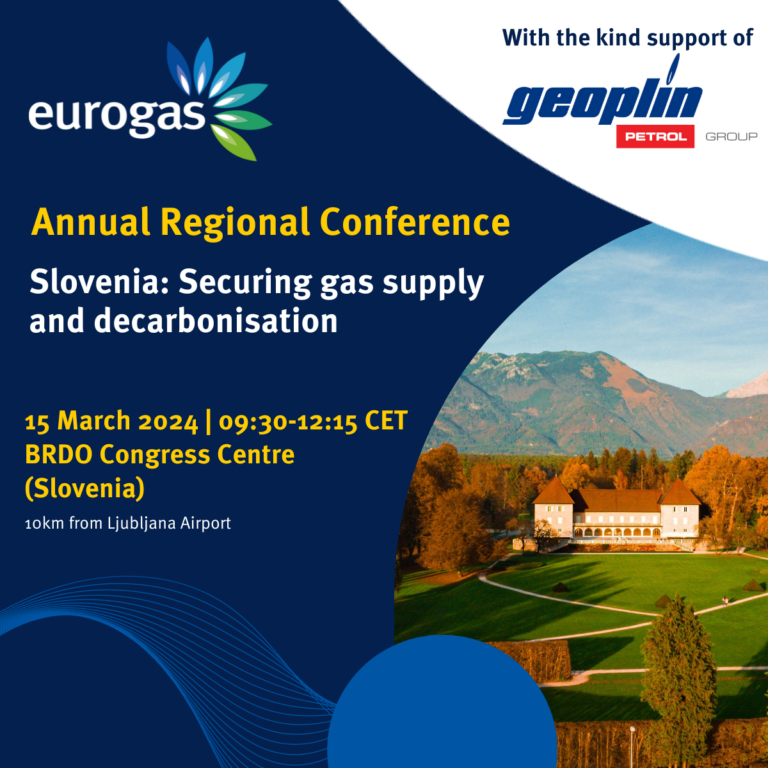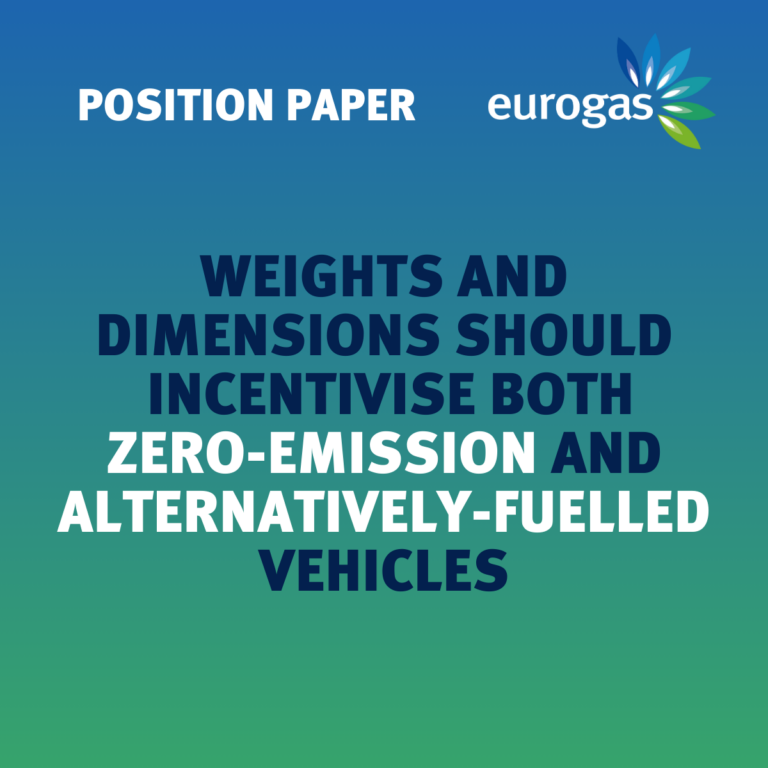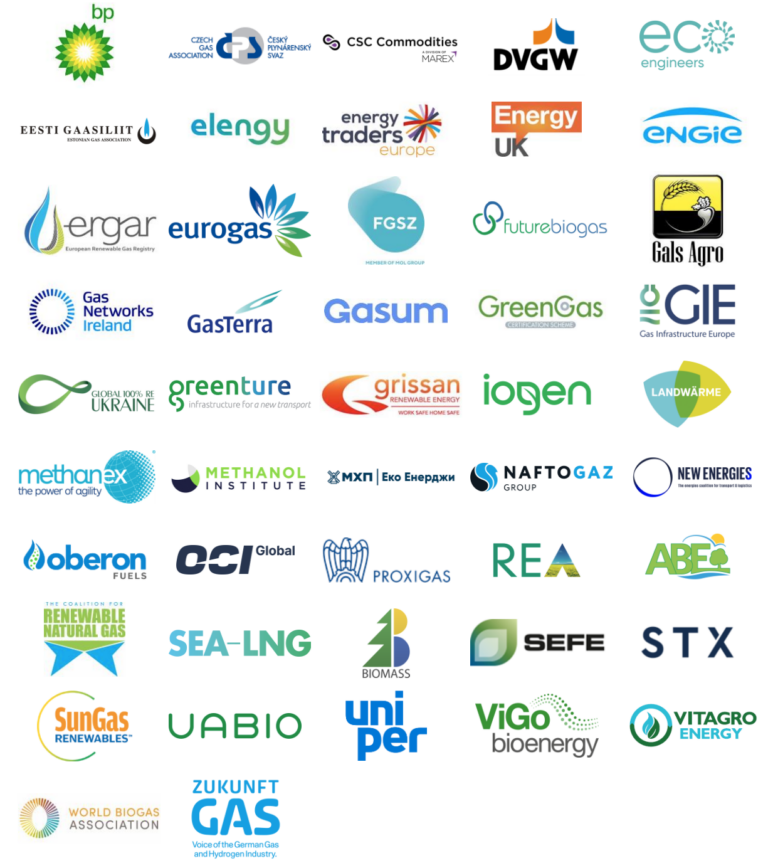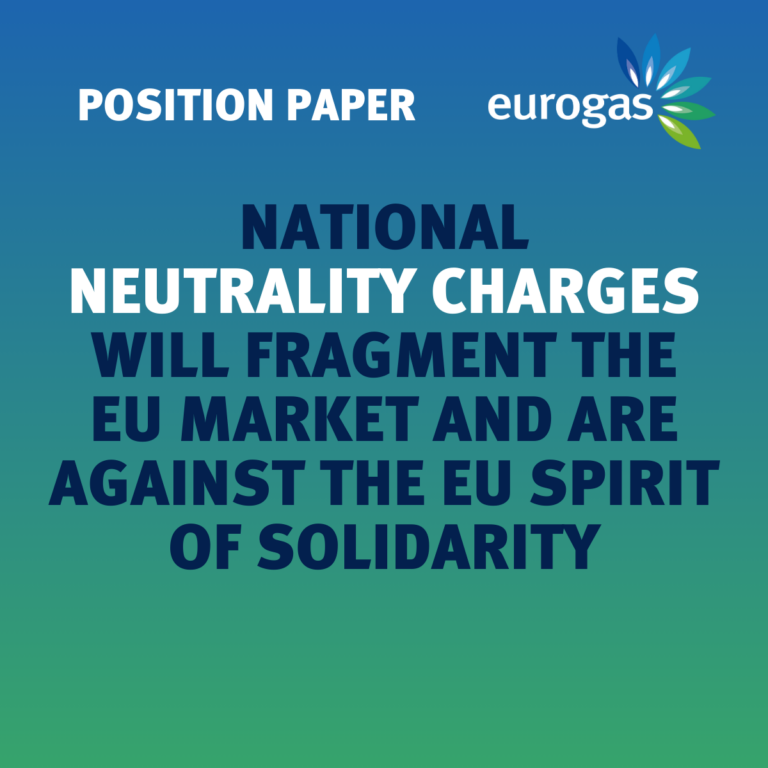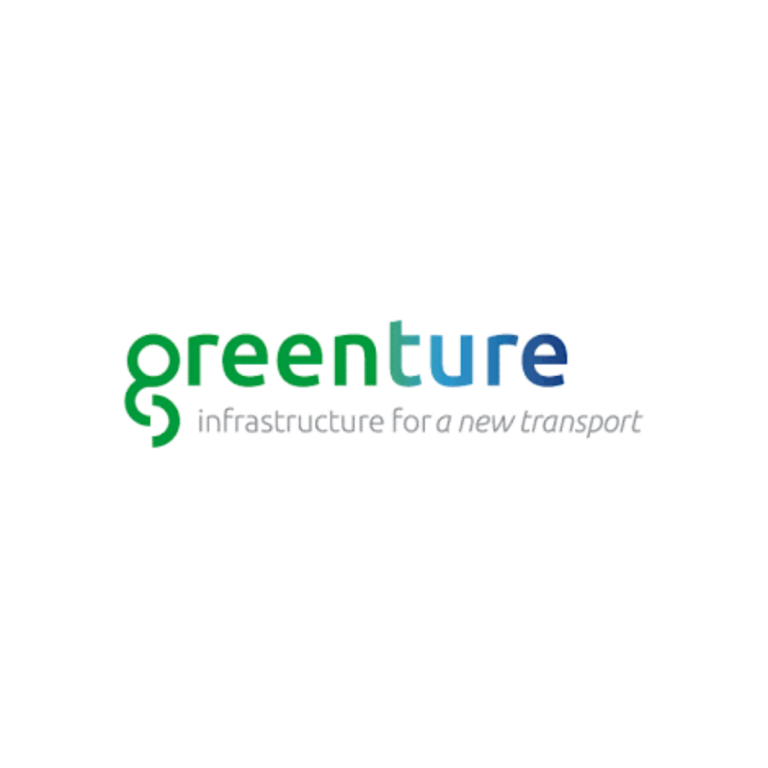
Editorial – Eurogas Secretary General James Watson
Dear members and readers,
Welcome back to another issue of Molecules. This month’s issue welcomes guest contributors, E.ON and Naturgy, who bring valuable insights to gas and gas technology developments around Europe. We have a new Eurogas Tech Talk from SmartSim, and an article from Communications Director Bronagh O’Hagan.
Our first piece is by Eurogas member E.ON, discussing projects that demonstrate feasible ways of scaling up the hydrogen economy and why they want to share their learnings.
We have a piece by Naturgy on blending. This myth-busting article looks at some of the concerns and misconceptions around blending, and provides quantative data which highlights that blending is vital to meeting European decarbonisation targets.
We’re also pleased to share our most recent Gas Tech Talk by SmartSim explaining their gas quality tracking method; a digital solution for the decarbonisation of European gas grids.
This week’s Sectoral Social Dialogue meeting, superbly chaired by ACUE’s Silvia Vlasceanu, was the first since the launch of our joint jobs study with IndustriAll Europe and EPSU under the auspices of DG EMPLOY. In the final article, Bronagh O’Hagan outlines the motivation for the study, what we know so far and how it will help deliver on a just transition.
There’s plenty of good content this month, we hope you’ll enjoy it.
Scaling Up the Hydrogen Economy – E.ON
E.ON has undergone a massive transformation in the past years and is now fully focused on low carbon solutions and energy infrastructure across 15 European countries. In addition to renewable electricity, renewable and low carbon gases will be indispensable as a storage medium and energy carrier in the coming decades and will be a decisive pillar of the energy transition in all sectors. For this reason, E.ON is making the existing gas infrastructure H2-ready and intends to play a pioneering role in the hydrogen economy of the future.
Hydrogen has now fully arrived on the political agenda, as evidenced not least by the European and national hydrogen strategies. These strategies are necessary to support the ramp-up of hydrogen technologies and the development of the market. E.ON supports this development and is already broadly positioned in numerous projects – from the decentralised generation of hydrogen to the integration of hydrogen into grids and the supply of its customers.
These projects are essential to demonstrate how a hydrogen economy could work, which then incentivises wider deployment. This in turn can mean that emissions can be reduced faster, operational efficiency will be improved and cross-sector use, as well as cost reduction, can be reached more easily.
The path is clear: In the long term, all sectors and areas need to be decarbonised. But with pure electrification, limits will be reached at some point. Hydrogen can be used wherever the direct use of electricity is not technically or economically possible. Another advantage is that renewable and low carbon gases enable long-term energy storage and the integration and full use of variable renewable energies.
One area that must also be considered is the heating market. There are no sufficient solutions in this area through the exclusive use of electricity. In poorly renovated old buildings, the technical hurdles and financial costs are often too high or take too much time. The use of existing gas networks for renewable and low carbon gases can help implement cost-effective and thus socially balanced solutions for customers.
E.ON is exploring questions around how much hydrogen can be added to existing natural gas networks and how the networks need to be converted. In this way, it is possible to gain important insights to make E.ON networks H2-ready. In our pilot project in the region of Fläming, for example, we are currently testing the injection of 20 percent hydrogen into natural gas pipes. For a Westnetz project in Holzwickede, E.ON plans to switch to 100 percent hydrogen. For this pipelines can be adapted and hydrogen-compatible condensing boilers installed at the customers’ sites.
The two projects are real and concrete field trials with which E.ON is testing how natural gas pipelines and end appliances, such as gas boilers, react to hydrogen. The wide range of possible applications and potentials will showcase where and under what circumstances the use of hydrogen can achieve a cost- and time-effective decarbonisation. The energy system of the future is a puzzle that will consist of different technologies.
The development of a hydrogen market requires a supportive legal and regulatory framework as well as suitable incentive mechanisms. The right conditions for hydrogen to develop its full potential need to be created so hydrogen and other gases can make their important contribution to the energy transition. Within the framework of Eurogas, we want to address the future classification of molecules, sound market and infrastructure rules, financing the transition and social implications.
Eurogas Member Naturgy Busts Myths on Blending – Jacinto Pico
Decarbonisation of the gas sector depends on the ability to quickly phase in renewable and low carbon gases. Below we explore some myths around blending and address common misconceptions.
Concern: Blending will ‘lock in’ natural gas, a fossil fuel.
Blending of hydrogen into natural gas networks enables a faster and smoother transition to climate neutrality and is already underway in some European countries. It supports a greater deployment of renewables because it provides a solution for surplus production to be converted into renewable hydrogen. This can then be injected into the gas grid and stored, meaning it can be used at a different time, in a different location, or for a different application. At the end of the day, energy infrastructure in itself does not emit greenhouse gases; it is what is injected or fed into it what determines its carbon footprint.
Concern: Blending involves investment in gas infrastructure.
A major benefit of blending is that it can repurpose existing gas infrastructure. Pipeline injection is a national strategy for many European countries. Some efforts in the UK have seen blends of more than 20% hydrogen by volume. In fact, some gas grids in Europe were originally designed to carry town gas, a mixture composed of up to 50% hydrogen: some DSO grids have shown they can accept a 100% hydrogen injection with few adaptations. Even a smaller percentage blend provides immediately renewable and lower-carbon energy to consumers connected to the gas network.
Concern: Blending is the gas industry resisting full electrification.
Blending supports the deployment of renewable electricity by helping generators to monetise their production in the form of renewable hydrogen, in line with the European Commission’s ambitious Hydrogen Strategy, aimed at delivering 6 GW of electrolysers by 2024 and 40 GW by 2030. Blending also promotes locally produced hydrogen, for example using small scale pyrolysis, and biomethane. As well as gains for regional job creation, this offers residential, commercial and industrial consumers a choice on how to decarbonise.
Decarbonisation requires a range of solutions in the form of electrons and molecules, and a holistic approach is at the core of the European Commission’s thinking enshrined in its Energy System Integration initiative. Future technological developments could steer our decarbonisation efforts down unforeseen avenues. So it would be beneficial to keep all options open, ensuring we are flexible enough to accommodate new developments later on.
Concern: Hydrogen combustion can be dangerous.
Data demonstrates a safe concentration of up to 20% for engines, burners and boilers is already possible with minimal or no adaptations needed to the infrastructure or appliances. Blending is particularly effective for decarbonising the residential heating sector since it would not require an upgrade to the ancillary electrical infrastructure or an overhaul of home heating systems. Meanwhile a higher concentration of up to 50% for example could already be considered for gas cookers and combined heat and power (CHP) applications.
What next?
Blending is an exciting and expedient option to reduce emissions. This should be properly recognised within the European energy regulatory framework to enable its rollout as soon as possible. Doing so will allow the EU to secure global leadership in the development of a viable hydrogen economy.
Jacinto Pico, European Regulation Naturgy

Eurogas Tech Talk: SmartSim on Gas Quality Tracking Methods
Renewable and low carbon gases are already being blended into networks and digital solutions for gas quality tracking helping European grid operators to do this. These systems allow determination of energy content to ensure gas customers receive the right calorific values.
Today, 20 operators are using SmartSim’s gas quality tracking method across Denmark, Germany and Sweden. SmartSim does not require any special hardware to be connected to the network. It just requires data – like volume, pressure, gas density and content for entry points.
As explained by Dr Ricklet, a binding EU target for incorporating renewable gases would help develop the market for renewable gas. That’s why Eurogas is calling for an 11% renewable gas target by 2030 along with a binding 2030 target for to reduce greenhouse gas intensity of gas consumed in Europe by 20% compared to 2018.
Some EU countries face regulatory barriers to handling different gas qualities. It is crucial that upcoming legislation provides an EU regulatory framework that allows injection of gases with different qualities into grids. This could be achieved through the Gas Decarbonisation Package.
As we progress with decarbonising grids there will be more demand for digital solutions like the one offered by SmartSim. Putting the right EU framework in place to support this now, means SmartSim and other European companies involved in decarbonising grids can grow and maintain European leadership in decarbonisation technologies.
Gas Tech Talk: Gas Quality Tracking – SmartSim – YouTube
Gas quality tracking systems are just one kind of Gas Tech driving decarbonisation while offering jobs and growth potential through European leadership in manufacture and export. To find out about the others in the series so far – gas turbines, gas boilers, electrolysers, anaerobic digestors for biomethane and gas engines for ships – visit our Knowledge Centre.
Reskilling and Upskilling for a Just Transition – Bronagh O’Hagan
The European Commission’s 1.5 TECH scenario and the Eurogas Pathways study both show that gas is needed to achieve on the energy transition. Optimising its inclusion will lead to jobs, many of which can be secured for European workers. A 2020 report by the JRC notes that around 18 million jobs will be created globally by 2030 in tackling global warming. The same report shows that past economic downturns limited Europe’s ability to secure these – the aftermath of the 2008 financial crisis saw renewables manufacturing capacities moving outside Europe.
Maintaining EU climate leadership and achieving a just transition requires a granular understanding of the state of play in European regions and industries. To that end, Eurogas has launched a joint study with our partners in the Sectoral Social Dialogue for Gas, EPSU and IndustriAll Europe, under the auspices of the European Commission’s Directorate-General for Employment, Social Affairs and Inclusion. The study will provide a breakdown of employment by country, changes on a regional scale, relevant companies, skills needs and challenges around developing those skills.
The Eurogas Gas Tech Talks series looks at decarbonisation technologies with the potential to create jobs and growth for the recovery. Home heating is one focus area. The EHI estimates this sector employs 1.8 million people in Europe, with less than 10% of space headers being imported from third countries. Companies like Bosch and Viessmann already produce boilers that can run on hydrogen blends – and have 100% hydrogen boilers in the field test stage. Their expertise provides much-needed solutions to decarbonising Europe’s varied building stock.
CCS is another technology offering job potential. It is estimated Europe can create around 150,000 jobs linked to CCS by 2050. The relevance of CCS goes beyond decarbonising the energy sector, it will allow industries like steel and cement to remain competitive through the energy transition.
While the potential for emissions reductions is not just related to the energy sector, the associated job potential goes beyond the kinds of work traditionally associated with gas. Grid operators are increasingly looking to digital skills, like those held by Eurogas member DCbrain. Digital solutions enable blending of renewable and low carbon gas, reduce operation and maintenance costs, and help optimise infrastructure planning.
There are many other examples – gas engines for ships, anaerobic digestors, AI systems for emissions detection and electrolysers manufacturing – to name a few.
Europe has expertise in key decarbonisation technologies and can take a global lead in their manufacture and export. As demand for such technologies grows, so will job opportunities. The joint study with our social partners will create a roadmap to ensure we build on these opportunities by providing the right reskilling and upskilling opportunities in the right regions. Eurogas is very pleased to be part of this and looking forward to working with our partners and wider stakeholder base on these points.
Bronagh O’Hagan, Communications Director Eurogas

Coming up : Events
Eurogas Let’s Meet! ‘The EU’s Renewable Ambitions: What role for Gas?’ | 11 May 2021, 09:30-10:30 (CET)

For more information on this event, please contact events@eurogas.org
Hydrogen Transportation & Distribution | Virtual conference | 6-7 May 2021

Producing and using green hydrogen is the future, however, when it comes to distribution and how can we manage to have long-distance transportation, there are still numbers of challenge and discussion going on within the industry, for example, the support of current infrastructure, networks development, European Hydrogen Backbone project…etc. This event provides a platform for decision-makers and key parties to exchange the latest knowledge, strategies, and opinions to tackle the challenges and create a greener future.
Topics: European Hydrogen Backbone, Large scale testing of infrastructure for repurposing to hydrogen, Global supply and demand of hydrogen, Economical and Infrastructural innovations, Cost-effective – EU hydrogen infrastructure – Transmission and Storage, Southern Company Gas’ approach to hydrogen relative to natural gas infrastructure
More information on this event here.
Eurogas is pleased to be a partner at the Hydrogen Transportation & Distribution event.
2nd Annual Green Hydrogen Summit | 11-12, 18-19 May 2021
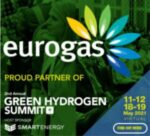
Governments across the world have put hydrogen at the centre of their decarbonisation plans with billions of dollars allocated to stimulating the market and whilst individual strategies will differ, the theme is the same: green hydrogen is the fuel of the future. The Green Hydrogen Virtual Summit will facilitate that with a high-level agenda packed with government and private sector decision-makers and a Meeting Hub for deal-making. The agenda will bring together renewable power generators, project developers, debt providers and investors, gas grids and off-takers to define a new energy era fuelled by hydrogen. Find out more on this event here.
Eurogas is pleased to be a partner at the 2nd Annual Green Hydrogen Summit.
Green hydrogen Forum | 26-27 May, 2021
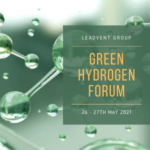
The Green hydrogen Forum is gearing up to provide attendees with seminal insights for successful operations within a digitally shifted green energy landscape. The forum will bring together industry leaders enabling accelerated adoption of green hydrogen, action to bring down CO2 emissions and will offer the ideal space for networking with industry players; senior managers, decision-makers, and practitioners operating in the industries and making the most of green hydrogen technologies.
Join the experts, practitioners, stakeholders, and leaders from Europe and the rest of the world to discuss the challenges and opportunities of green hydrogen production, explore opportunities for the supply chain, examine the role of green hydrogen in the global energy transition and its relevance for the achievement of net-zero carbon. In addition, various aspects of green hydrogen will be presented and discussed in several sessions: green hydrogen storage, transport, distribution and the development of infrastructure. Find out more on this event here.
Eurogas is pleased to be partnering at the Green hydrogen Forum.
7th International LNG Congress | 7-8 June 2021

The 7th International LNG Congress 2021 will take place online on June, 7-8. It will gather Gas Majors, EPCs, Local Gas Companies, LNG shipping, LNG road transportation, Truck and Fleet owners, Terminals and Ports to share their opinion on the current LNG market situation. Request more information here.
Eurogas is pleased to be a partner at the 7th International LNG Congress 2021
The Green Hydrogen Forum | 8-9 June 2021

The Green Hydrogen Forum will be a 2-day interactive and case study driven Forum bringing together key stakeholders, from Government representatives, Regulatory and policy makers, Electric Utility companies, Renewable Energy Companies, Gas and Electricity Transmission System Operators, Green Hydrogen Project Developers and EPCs and Technology solution providers.
The key focus of the Forum will be on networking and discussing key challenges, opportunities, and benchmarking best practices with regards to Green Hydrogen production, distribution, storage , transportation and upcoming market regulations, policies and latest technological development.
Find more information on this event here.
Eurogas is pleased to be partnering at the Green Hydrogen Forum.
Citizens Energy Congress | 15-16 June 2021

The Citizens Energy Congress, taking place virtually on 15-16 June 2021, will bring together a broad spectrum of energy industry professionals, policy makers, investors and civil society. Together, these groups will challenge the concepts and constraints of the existing energy models and foster consensus-driven foundations for a low carbon energy system.
The 2-day agenda will address the difficult questions facing the energy industry as it strives to balance energy access and climate change commitments. The broad audience will facilitate a balanced debate between all stakeholders from producers, end users, technology and service providers to investors, policy makers and civil society. Request more information here.
Eurogas is pleased to be partnering at the Citizens Energy Congress.

